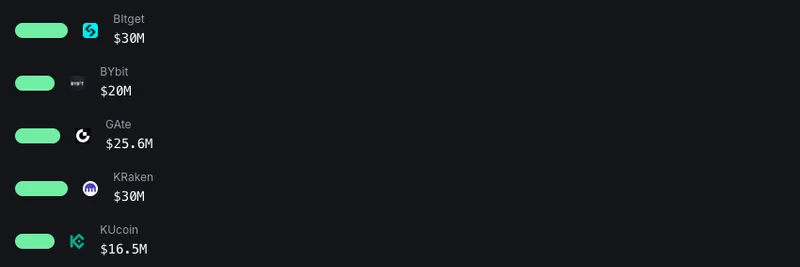The crypto world is no stranger to heated debates, especially when it comes to tokenomics—the economic design of a cryptocurrency, including how tokens are distributed, supplied, and used within its ecosystem. Recently, DoubleZero ($2Z), a decentralized protocol aimed at building high-performance permissionless networks for distributed systems, has been at the center of controversy. With its focus on accelerating communication by increasing bandwidth and reducing latency, it's positioning itself as a key player in the DePIN (Decentralized Physical Infrastructure Networks) space. But not everyone is thrilled with its approach to token distribution.
Mason Nystrom, an investor at Pantera Capital and a well-known voice in crypto, took to X (formerly Twitter) to address what he calls "terrible takes" about DoubleZero's tokenomics. In his post, Nystrom clarifies he's not invested in the project and has no stake, making his opinions purely observational. Let's break down his key points and why they matter for anyone tracking meme tokens or utility-driven projects like this.
The Shift Toward Revenue-Focused Models
Nystrom kicks off by noting that as crypto projects increasingly prioritize revenue generation, their capital structures are starting to resemble traditional companies. This means moving away from massive airdrops—free token distributions to early users or community members—that dilute the supply. He argues that you can't raise capital through dilutive rounds and then give away 30-50% of tokens in an airdrop; the math simply doesn't add up for sustainable growth.
For context, DoubleZero raised $28 million across funding rounds, including a token launch and IDO (Initial DEX Offering), according to data from ICODrops. Their token sale was uniquely targeted at validators on networks like Solana, Aptos, and Avalanche via CoinList, emphasizing contributions from those who can actually build and secure the network rather than broad retail giveaways.
Bootstrapping Isn't for Everyone
Pointing out that most founders lack the resources to self-fund their ventures, Nystrom anticipates similar models from projects like Hyperliquid. In crypto, bootstrapping means launching without heavy venture backing, relying on organic growth or community support. But for ambitious infrastructure plays like DoubleZero, which is essentially building a fiber network equivalent in the decentralized world, institutional backing is crucial for scaling.
Value from Institutions Over Retail
One of the spicier takes: Nystrom asserts that institutions, validators, builders, and developers add far more value than average retail participants. Since DoubleZero isn't a simple trading app but a protocol for real-world infrastructure, retail users aren't contributing fiber lines or network resources. This aligns with the project's goal of optimizing for high-performance systems, as outlined on their official site.
This perspective challenges the meme token ethos, where community hype and retail involvement often drive value. Yet, for DePIN projects, tangible contributions matter more, potentially leading to stronger long-term fundamentals.
Airdrop Frustration is Mostly Cope
Nystrom doesn't mince words: Most complaints stem from people upset they didn't get free tokens. He views airdrops as often gamed (exploited by bots or sybil attacks) and a poor use of capital unless in hyper-competitive markets. Historically, while airdrops can bootstrap liquidity, they frequently lead to sell-offs that tank prices post-launch.
DoubleZero's current price hovers around $0.48 USD, with a market cap over $1.7 billion, per CoinMarketCap. Skipping a retail airdrop might have preserved value for committed stakeholders, avoiding the dilution seen in other launches.
Backing Ethical Stewards in Crypto
Finally, Nystrom shouts out Austin Federa, likely a key figure in the project (known for his role in Solana's ecosystem), as an ethical actor whose success benefits the broader crypto space. This underscores a maturing industry where governance and stewardship are as important as innovation.
In the meme token world, where hype can overshadow substance, DoubleZero's approach is a refreshing reminder that not every project needs to chase viral airdrops. By focusing on value-adding participants, it could set a precedent for sustainable tokenomics in DePIN and beyond. If you're building or investing in similar spaces, keep an eye on how this plays out— it might just redefine the "revenue meta" Nystrom mentions.
What do you think? Is the backlash justified, or is this a smart pivot for crypto's future? Drop your thoughts in the comments below. For more insights on meme tokens and blockchain innovations, stick around at Meme Insider.




